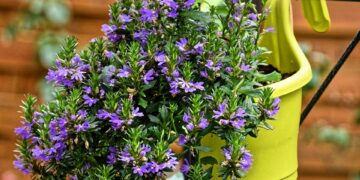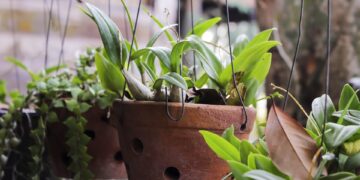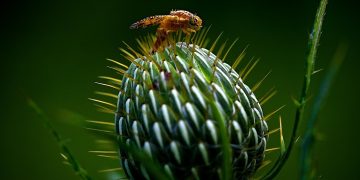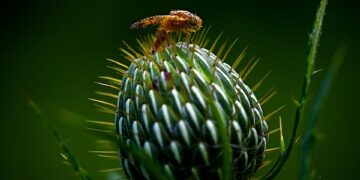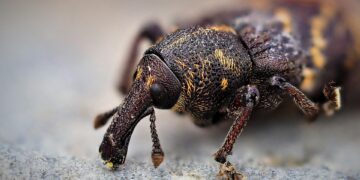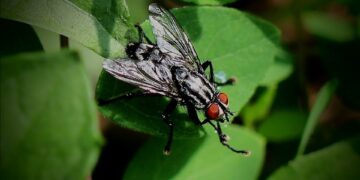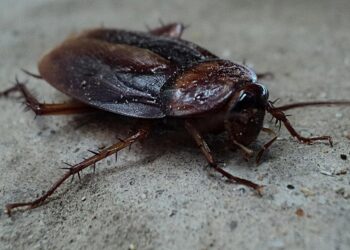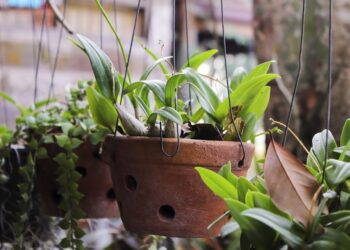Defending Your Garden: Conquering the Battle Against Pests
Gardening is a rewarding and therapeutic hobby, but it can also be a constant battle against pests. From insects to rodents, these unwelcome visitors can wreak havoc on your plants and flowers if left unchecked. Fortunately, there are several strategies you can employ to defend your garden and keep it thriving. In this article, we will discuss some effective methods for protecting your garden from pests.
Identifying Common Garden Pests
Before you can effectively defend your garden against pests, it’s important to know what you’re up against. Some of the most common garden pests include aphids, slugs, snails, caterpillars, and rodents. Each of these pests can cause damage in their own way, whether it’s by eating your plants, spreading diseases, or destroying your garden beds.
Creating a Healthy Garden Environment
One of the best ways to defend your garden against pests is to create a healthy environment that is less attractive to them. This includes maintaining proper soil health, providing adequate sunlight and water, and choosing plants that are less susceptible to pests. By creating a strong and healthy garden, you can help prevent pest infestations before they even begin.
Using Natural Pest Control Methods
When it comes to defending your garden against pests, natural methods are often the most effective and environmentally friendly. There are several natural pest control methods you can try, including introducing beneficial insects like ladybugs and lacewings, using neem oil or insecticidal soap, and planting companion plants that repel pests. These natural methods can help keep pests at bay without harming your plants or the environment.
Setting Up Physical Barriers
Another effective way to defend your garden against pests is to set up physical barriers that can keep them out. This can include using row covers to protect your plants from insects, building fences to keep out larger pests like rabbits and deer, or using netting to protect your fruits and vegetables from birds. By creating physical barriers, you can help prevent pests from reaching your plants in the first place.
Regular Monitoring and Inspection
Regular monitoring and inspection of your garden is essential for defending against pests. By regularly checking your plants for signs of pest damage, you can catch infestations early and take action before they get out of control. Look for chewed leaves, holes in fruits, or other signs of pest activity, and be proactive in addressing any issues you find.
Implementing Integrated Pest Management
Integrated Pest Management (IPM) is a holistic approach to pest control that focuses on prevention, monitoring, and control. By combining multiple strategies, such as cultural practices, natural predators, and targeted pesticides, you can effectively defend your garden against pests while minimizing harm to the environment. Implementing an IPM plan can help you keep your garden healthy and pest-free in the long run.
Commonly Asked Questions About Garden Pest Control
What are some natural ways to control pests in my garden?
There are several natural pest control methods you can try in your garden, including introducing beneficial insects, using neem oil or insecticidal soap, and planting companion plants that repel pests. These natural methods can help keep pests at bay without harming your plants or the environment.
How can I prevent pests from infesting my garden?
Creating a healthy garden environment is key to preventing pest infestations. This includes maintaining proper soil health, providing adequate sunlight and water, and choosing plants that are less susceptible to pests. By creating a strong and healthy garden, you can help prevent pests from infesting your plants in the first place.
What are some signs that my garden is infested with pests?
Some signs that your garden may be infested with pests include chewed leaves, holes in fruits, or wilting plants. If you notice any of these signs, it’s important to take action quickly to prevent further damage to your plants.
Conclusion
Defending your garden against pests can be a challenging task, but with the right strategies and techniques, you can keep your plants healthy and thriving. By identifying common garden pests, creating a healthy garden environment, using natural pest control methods, setting up physical barriers, regularly monitoring and inspecting your garden, and implementing integrated pest management, you can conquer the battle against pests and enjoy a beautiful and pest-free garden.
Remember, prevention is key when it comes to pest control, so be proactive in defending your garden and addressing pest issues before they become a major problem. With a little effort and the right tools, you can keep your garden healthy and flourishing all season long.











